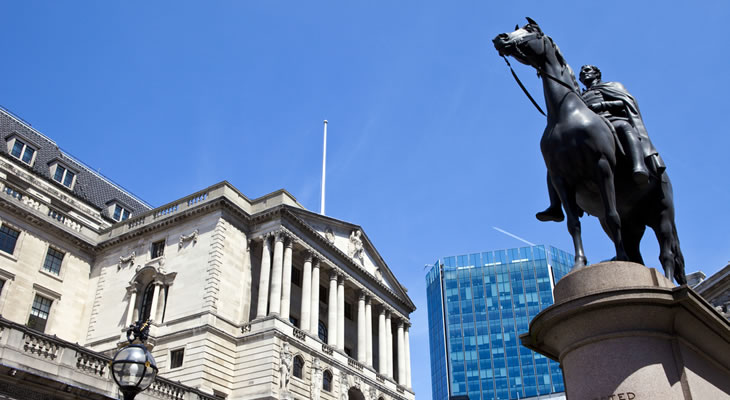The Pound has lost some of its sparkle on the afternoon of 1st February, seeing a smaller 0.5% advance against the South African Rand.
This deterioration in the Pound to Rand exchange rate is partly down to the latest Brexit news, which has tellingly been concerning.
Prime Minister Theresa May has pledged to end the free movement of EU citizens to the UK once the country enters the transitional period in 2019.
Objections have been coming in from all sides, with some predicting an economic slowdown because of reduced seasonal or temporary workers.
(First published 1st February, 2018)
Hints of BoE Policy Tightening may Trigger GBP/ZAR Exchange Rate Rally
The Pound to Rand exchange rate (GBP/ZAR) has risen by 1% on 1st February, as part of an all-around advance for Sterling.
Elsewhere, the Pound has also risen by 1.1% against the Australian Dollar and 0.3% against the US Dollar.
This advance comes a week before the first Bank of England (BoE) interest rate decision of 2018, which will occur on 8th February.
The BoE isn’t expected to adjust UK interest rates during the policy meeting, but could still shift the Pound with upgrades to the bank’s growth forecasts.
BoE Governor Mark Carney has recently stated that he sees UK economic confidence picking up in 2019, saying;
‘My impression of UK business is that they’re looking for certainty.
Given the state of their balance sheets, once they [get] greater certainty, they will look to put that money to work.
There should be a pick-up in investment in 2019.’
Mr Carney also predicted improving real incomes in 2018, saying;
‘The firming of the labour market and the pick-up in wages over the course of the next few years appears to be on track, so there is a prospect of a return of real income growth later this year’.
If the BoE meeting shows that policymakers are in agreement with Carney’s forecasts, the Pound to Rand exchange rate could rise sharply over increased trader optimism.
Return to Higher UK Inflation Raises Chances of GBP/ZAR-Boosting Interest Rate Hike
Another factor that could cause higher Pound to Rand (GBP/ZAR) interest rates is the state of UK inflation, which some economists believe could rise in the future.
UK inflation notably slowed from 3.1% to 3% in December 2017, the first reduction in six months.
Recent UK manufacturing stats have suggested that inflation could pick up again in the future, in which case a UK interest rate hike could be more likely.
Commenting on the manufacturing PMI data for January, Markit Director Rob Dobson said;
‘The UK manufacturing sector reported an unwelcome combination of slower growth and rising prices at the start of 2018.
The biggest advance during the latest survey came on the prices front, with the recent easing in inflationary pressure seeing a sudden sharp reversal.
The pass-through of costs took selling price inflation to its highest in nine months.
These price trends will be watched closely to see if the upsurge is simply a one-off spike or something more embedded’.
If UK inflation does pick up in the coming months, this would increase the pressure on the BoE to consider raising interest rates to combat higher consumer prices.
Rand to Pound Exchange Rate Recovery possible on ANC’s Zuma Ruling
For the South African Rand, the status of President Jacob Zuma remains a key factor in future movement against the Pound.
Zuma, South Africa’s longtime national President, it tipped to be removed from office in 2018, which could be the start of a prosperous chapter for the country.
The problem is that there isn’t a current timeline on when Zuma could leave office (or be forced from it).
Emphasising the inevitability of Zuma’s departure, ANC Party Treasurer-General Paul Mashatile has said;
‘We are aware there are a lot of people who want the new leader of the ANC taking power. It is going to happen’.
If a clear plan for Zuma’s replacing comes to light, the Rand could rally against the Pound over soaring trader confidence.


Comments are closed.